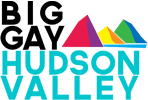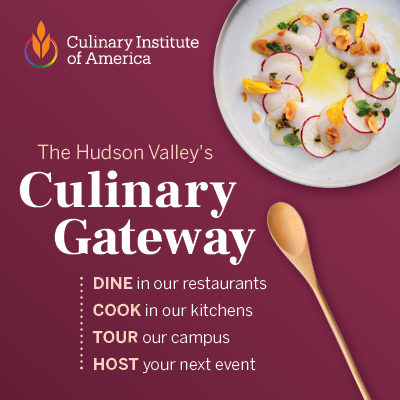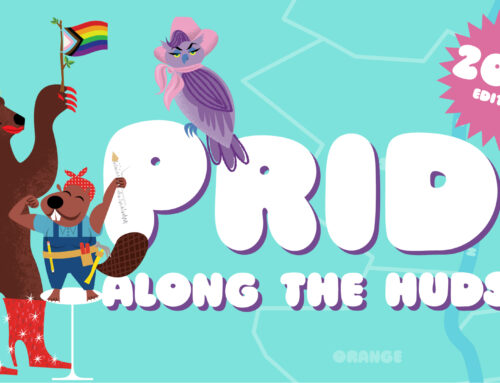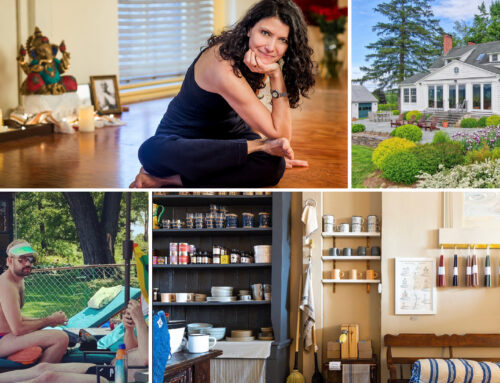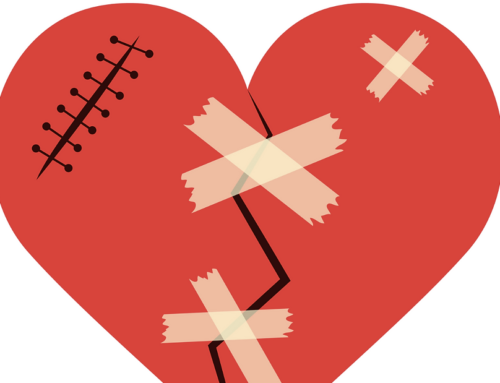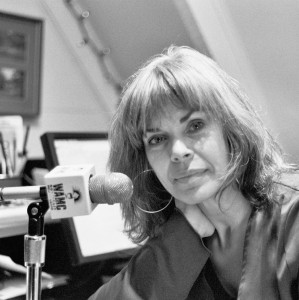
WAMC's Susan Barnett, photo by DB Leonar
If you are a regular listener of WAMC, Northeast Public Radio, you are likely well aware of their Hudson Valley Bureau Chief; Susan Barnett. Over the years she has covered a tremendous array of stories, although with the ongoing struggle for LGBTQ equality making frequent headlines, Susan has become an expert on so many of the issues that affect us each and every day.
If you were listening to WAMC this summer, you likely heard the story that Susan did with us about our marriage in Amsterdam – and our efforts to raise awareness for the issue of marriage equality in the Empire State.
BGHV invited Susan to sit down with us, as we wanted to learn more about her and get her perspective on some of the issues the LGBTQ community in our region is faced with.
BGHV: With the listenership of WAMC being so broad, what do you think makes the gay & lesbian community of New York’s Hudson Valley so unique?
SB: I think the entire Hudson Valley is unique because of its strange marriage of urban sophistication and rural simplicity. Thanks to our proximity to NYC, we’ve got a huge population of urban refugees and part time refugees. Many of them are artistic and creative, all of them add a unique flavor to a region that, without them, might be closer in spirit to other NY rural areas. Schoharie, Otsego, Delaware counties are absolutely lovely and there are certainly some creative people hiding away in their hills. But I don’t believe there’s any other part of the state that is so liberally populated with independent thinkers, proud members of the counterculture and members of various groups that show the real diversity of what it means to be American.
Those creative thinkers have always been drawn to the Catskills, even back to the days of Woodstock’s Byrdcliffe and Maverick colonies and the Arts Students’ League. I think that spirit creates an endless loop – a place that welcomes creativity draws creative people, who then continue the tradition of welcoming creativity.
I have always believed that creativity and open thinking go hand in hand. Open thinking doesn’t accept the status quo just because “that’s how it’s always been.” It asks “why?”
BGHV: Considering the flurry of news stories that come across your desk, what do you think is added to the region’s quality of living by choosing to report on the happenings of our gay & lesbian community?
SB: This question reminds me of my initial thoughts when I first was made host of a nationally syndicated women’s issues show. I had to ask myself how I defined women’s issues. And my conclusion was that there are no exclusively women’s issues or men’s issues – so long as human beings interact with each other, all issues are human issues. This applies to gay and lesbian issues as well. The equal marriage rights question isn’t a gay or lesbian issue, it is a human issue, a civil rights issue. As such, it affects everyone.
None of us lives in a vacuum. I do not choose to report on the events in the news. They demand coverage by affecting the widest possible group of people. Don’t Ask, Don’t Tell, equal marriage rights, health issues, health care reform, the economy; these are stories that affect us all and many have particular angles that apply only to the LGBTQ community. Those angles are important to cover.
BGHV: Over the course of your three years at WAMC (it has been three now, right?) how have you seen both the politics – as well as public opinion – around LGBTQ equality change?
SB: It has been three, plus I grew up in the HV so I’ve got a pretty long term view of the attitudes here, though I was gone for twenty years. I think the politics has not changed as much as the public opinion, and the public opinion still includes a significant number of people who fear that LGBTQ equality somehow threatens what they see as the traditional American way of life.
What I think is heartening is that not only is the number of active supporters of LGBTQ equality growing, but there is growing number of people for whom this just isn’t an issue. I think of my own children, both of whom voted in the last presidential election, and realize that they don’t even understand why there’s any question. To them, everyone should have the same rights. Period. End of discussion. It’s a no-brainer. And they are the future. They are the next wave of voters, of leaders. I find that absolutely wonderful.
BGHV: Back in July, you reported on our trip to Amsterdam for our wedding. With Marriage Equality having been such a hot button issue in the Empire State, what kind of listener feedback did you receive to that story?
SB: You must understand that at WAMC, we’re probably preaching to the choir. Rightly or wrongly, we’re perceived as “left leaning” and “progressive”. Our president, Alan Chartock, is an outspoken advocate of equal marriage rights. So I’m guessing that report was heard by sympathetic ears.
All I heard was hearty congratulations to both of you.
BGHV: As we know, the fight for New York State marriage equality took a strong hit this year. Who do you think will be the influential people to watch – from both sides of the fence – as this issue evolves in the coming year?
SB: I think any Republican will be someone to watch, as the Republican party tends to stand on the status quo when it comes to equal marriage rights. The GOP made a strong showing in the last election and whether the next governor is Democratic or Republican, he or she is likely to be dealing with a strong GOP presence in the legislature.
Another very important group to watch is Responsible NY led by Tom Golisano. Their mission doesn’t mention LGBTQ issues, at least on their main mission statement, but they are a powerful, well-funded and very effective PAC. They take credit for the deal which led to the Senate shutdown this past summer. Whatever their stand is, they have the muscle to elect candidates who agree with them.
BGHV: In your opinion, as an ally of the LGBTQ community, what is the community doing well – and what should we consider changing – in our efforts to gain full equality?
SB: I’m no expert on politican activism. I think the Hudson Valley LGBTQ Community has some powerful and very effective advocates, people who’ve been fighting the fight for years. What I will say is that when you want to change someone’s mind, nothing is more effective than personalizing the issue. That’s why I thought the story about Stephan and Patrick’s wedding was important; it put human faces on an issue that is usually argued in the hypothetical.
People are not hypothetical. And once you know someone, it’s hard to argue against extending them the same rights every other citizen enjoys.
To learn more about WAMC, or how you can support Northeast Public Radio, please visit their website.
